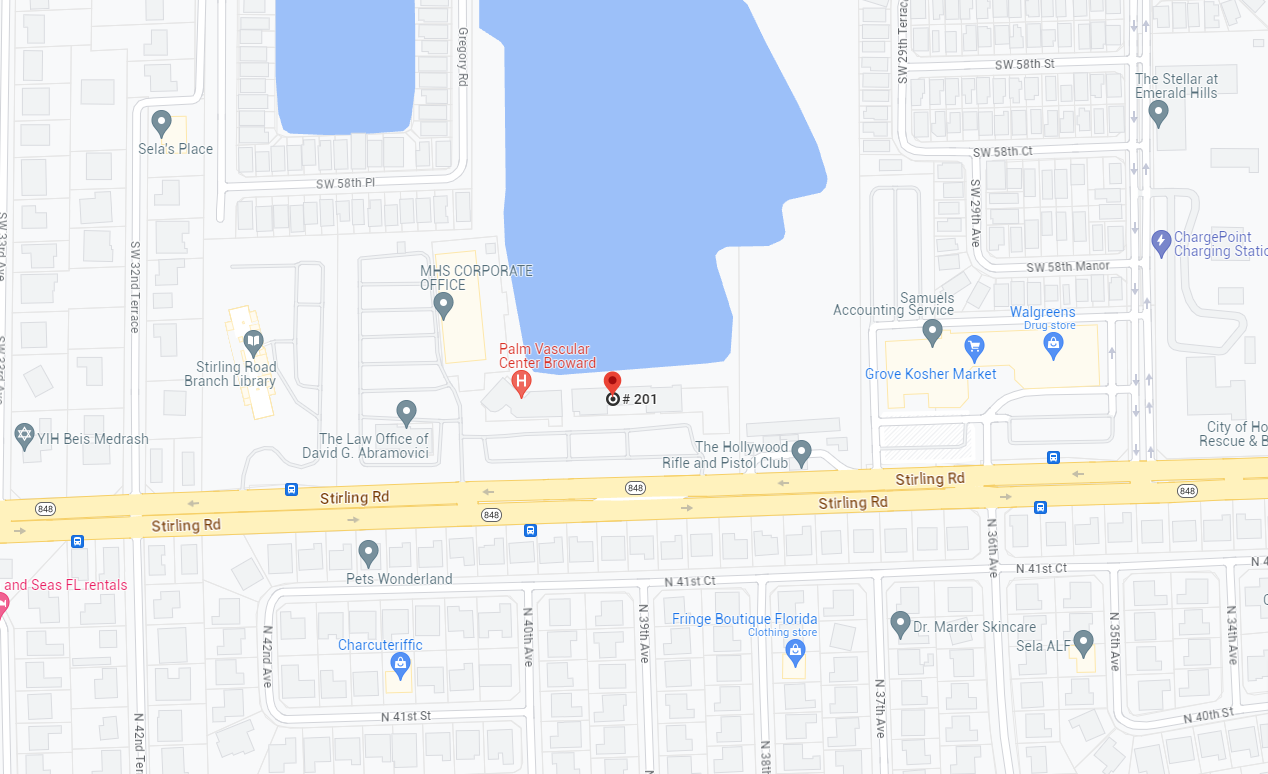First DCA Decision Affects Rights of Church Congregations to Take Church Property
By: E. Scott Golden
A recent decision by one of Florida’s five appellate courts has opened the door for religious denominations to claim that real estate originally purchased for the denomination should stay in the denomination. This decision heralds a change in the way property purchased for religious purposes is viewed.
Background
In Florida (as in most states), churches (and other religious organizations) are divided into two categories for purposes of property issues. They are either hierarchical (in which the denomination has a single, centralized government, such as the Roman Catholic Church, the United Methodist Church, and the Assemblies of God), or they are congregational (in which each local congregation is autonomous, such as Southern Baptist churches, Congregational churches, and most Jewish synagogues).
Hierarchical churches typically own the assets of the denomination through the trustees of the various churches. In order to enforce that ownership, the denomination usually requires that deeds of land that are acquired for church purposes include language requiring the property to revert to the denomination in the event that the church leaves the denomination. When the proper language is used, the denomination’s property is protected (for the use of the denomination).
Many hierarchical churches don’t enforce the use of such language, either because they don’t understand the need to do so or they don’t have attorneys that are aware of the denominational requirements to include the proper language in their deeds. Failure to include such language can cause a problem regarding the ownership of the property in the event that the pastoral staff of a church leaves the denomination and attempts to take the land with it.
There are two major exceptions to the right of a denomination to claim property owned by one of its churches. First, many denominations are congregational, not hierarchical. Although their churches may share the mutual benefits of a denomination, each church is legally its own and is not subject to any oversight. Whoever owns title to the church property for that type of church (either the trustees of an unincorporated religious association or the board of directors of a corporation) has authority over the church property. The board of directors, often controlled by the pastoral staff, can leave the denomination and take the property. The denomination has no rights in or control over the property.
The second exception to denominational control of the church property is when the property is placed in a corporation. In that case, unless the deed to the property has the language that says that the property reverts to the denomination in the event that it is no longer being used for denominational purposes, the board of directors of the corporation has complete authority to control the property. Again, because pastorals often have significant input over the members of the board of directors of the corporation that controls the church property, a pastor can decide to leave the denomination and take the property with him.
Recent decision
In the recent court decision, the church’s real estate was owned by a corporation that was controlled by a church that left its denomination. Furthermore, the deed to the property did not include language that the property was to revert to the denomination in the event that the church left the denomination. Notwithstanding these legal reasons to allow the church-controlled corporation to remove the property from the control and oversight of the denomination, the First District Court of Appeal for Florida (the appellate court for North Florida) ruled that, because the property was purchased by a church that was part of the denomination, and in agreement with the denomination’s right to the property when the property was originally purchased, it was the denomination’s property. Therefore, when the church left the denomination and became independent, it had no right to retain control of the property.
Effect
Although the recent decision technically involves only one of the five appellate districts in the State of Florida, there are a couple of effects that are important. First, if a church attempts to pull out of a hierarchical denomination, then, even if its deed does not contain the language causing the property to revert to the denomination, it is possible that the property may still be salvaged for the denomination. Second, without this decision, it was very easy for incorporated churches to leave a denomination and take the property with them. Denominations may now have the right to control the property even in those circumstances. Therefore, although incorporation of churches is still not the best choice for property protection, and there is no certainty that this particular decision will be uniformly applied in every situation, the courts may be moving in a direction that would make it easier in the future for denominations to retain properties that were purchased with donations of the members of the denomination.
If you have any questions about the law affecting church property in Florida, contact a Fort Lauderdale church lawyer for church and charitable law questions online, or call us at 954-764-6766 to schedule an appointment.
Third District Clarifies Rights of Condominium Association at Conclusion of Bank Foreclosure
By: E. Scott Golden
A recent case in the Florida Third District Court of Appeal clarifies the rights and procedures of a condominium association at the conclusion of a residential foreclosure. In that case, Ocean Bank v. Caribbean Towers Condo Ass’n, Inc., 38 Fla. L. Weekly D1726 (Fla. 3d DCA 2013), the Bank was foreclosing on a residential condominium and added the condominium association as a Defendant. When the residential foreclosure was completed, the Association invoked the forum of the foreclosure court to seek past-due condominium assessments. The Association sought to obtain payment from the Bank all of the past-due assessments, which totaled an amount far greater than the amount to which the Association was entitled under the Statute that governs the Association’s rights. The Association may have had the right to sue the foreclosed owner for the full amount of the unpaid assessments, but it did not have the right to sue the Bank for the full amount. The trial court ruled for the Bank, and the Bank then filed a motion for attorney’s fees. The Association argued that the foreclosure court was not a proper forum to hear the issue of attorney’s fees. The trial court denied the motion for attorney’s fees on the basis that a claim for attorney’s fees was not contained in the original foreclosure pleadings. The Court of Appeal reversed the trial court on that issue. The Appellate Court stated that, although the foreclosure pleadings did not request attorney’s fees regarding litigation over condominium assessments, the Association waived any right to contest the Bank’s right to seek attorney’s fees when the Association accepted, and did not appeal, the trial court’s jurisdiction over the issue of the past-due assessments.
The Court of Appeal narrowly ruled that, when the issue of condominium assessments is contested in the foreclosure court, the issue of attorney’s fees to the prevailing party may also be determined by the same court. More broadly, this case raises implications that a court always has the right to consider attorney’s fees regarding all of the substantive matters raised and heard in that court.
If you need to consult with a Broward County real estate attorney regarding any aspect of real estate or real estate litigation, then please contact our firm at (954) 764-6766 to schedule an appointment.
Recent Changes to Residential Landlord-Tenant Statutes
By: E. Scott Golden
A number of changes to the residential landlord-tenant law recently became effective. Among the principal changes are the following:
1. The security deposit law is tightened up. If a landlord does not notify the tenant of the intent to impose a claim within 30 days of the tenant’s move, the landlord must provide a full refund. This is the same as prior law, but clarifies it.
2. The leases for all landlords with at least five rental units must contain specific statutory language about security deposit protection procedures. Because this language is new, current lease forms do not contain this language! Without the language, a landlord’s claim on a tenant’s security deposit may be viewed as invalid or may limit the landlord’s claim on the security deposit. All leases entered into as of January 1, 2014, must contain the new deposit language.
3. A landlord can now evict after a seven-day notice for any purpose. The law used to require further notice in some circumstances. Not now. Evictions can proceed more quickly.
4. Landlords can now accept partial rental payments in the same month that they file an eviction. However, the partial payment must be placed in the court registry or a new 3-day notice must be served. Until now, some courts would not let landlords evict at any time in a month after receipt of payment of partial rent, even if the payment may have constituted past-due rent from a prior month, rather than rent for the current month.
5. If a lease requires tenants to provide up to 60 days’ notice to vacate (or, presumably, for automatic renewal), the landlord must provide the same amount of notice of non-renewal.
These are just a few of the changes. If you need to consult with a Broward County real estate attorney regarding a landlord-tenant matter, then please contact our firm at (954) 764-6766 to schedule an appointment.
Fla. Stat. § 489.128 Now Allows Payment to Some Unlicensed Contractors
By: E. Scott Golden
Because of the way courts have construed a recent change in Florida law, an unlicensed contractor may, in some circustances, be able to be paid through a court proceeding. Until recently, that was not the case.
Under the old law, if a contractor was required to have a license to perform his services, but did not have a license, he could not recover anything in court if he was not paid. Fla. Stat. §489.128 (which precludes any relief “in law or equity by the unlicensed contractor.”) That has now changed, in certain circumstances.
In the case of MGM Constr. Svcs Corp. v. Travelers Cas. & Sur., 57 So. 3d 884 (Fla. 3d DCA 2011), the Third District Court of Appeal decided that, because of a recent change in the language of Section 489.128, if a contractor does not need to have a state license, but needs to have a county license, and fails to procure the county license, the contractor is not precluded by 489.128 from seeking affirmative relief in court. This is a change from prior law (which continues to control for contractors who are required to have a state license).
We now have four situations when an unlicensed contractor performs services:
1. State license required for the type of work being done: The contract is completely unenforceable in law and equity if the contractor did not have a license. In at least one district (the 1st Distrcit Court of Appeal in North Florida), a person that has paid the unlicensed contractor is entitled to seek disgorgement of the money that has been paid, despite getting to keep the benefit of the contractor’s work.
2. No state license required, but county license required, for the work being done, and county ordinance does not say that a contract by an unlicensed contractor is unenforceable: The contract is not automatically unenforceable (at least in the 3d DCA in the MGM Construction case). There is a series of factors to be weighed, which are listed in MGM in order to determine enforceability.
3. No state license required, but county license required, for the work being done, and county ordinance says that a contract by an unlicensed contract is unenforceable: MGM does not directly address this, but the decision intimates that the contract would not be enforceable
4. No state or county license required: The contract is generally enforceable.
If you need to consult with a Fort Lauderdale construction attorney regarding an issue involving an unlicensed contractor, then please contact our firm at (954) 764-6766 to schedule an appointment.






